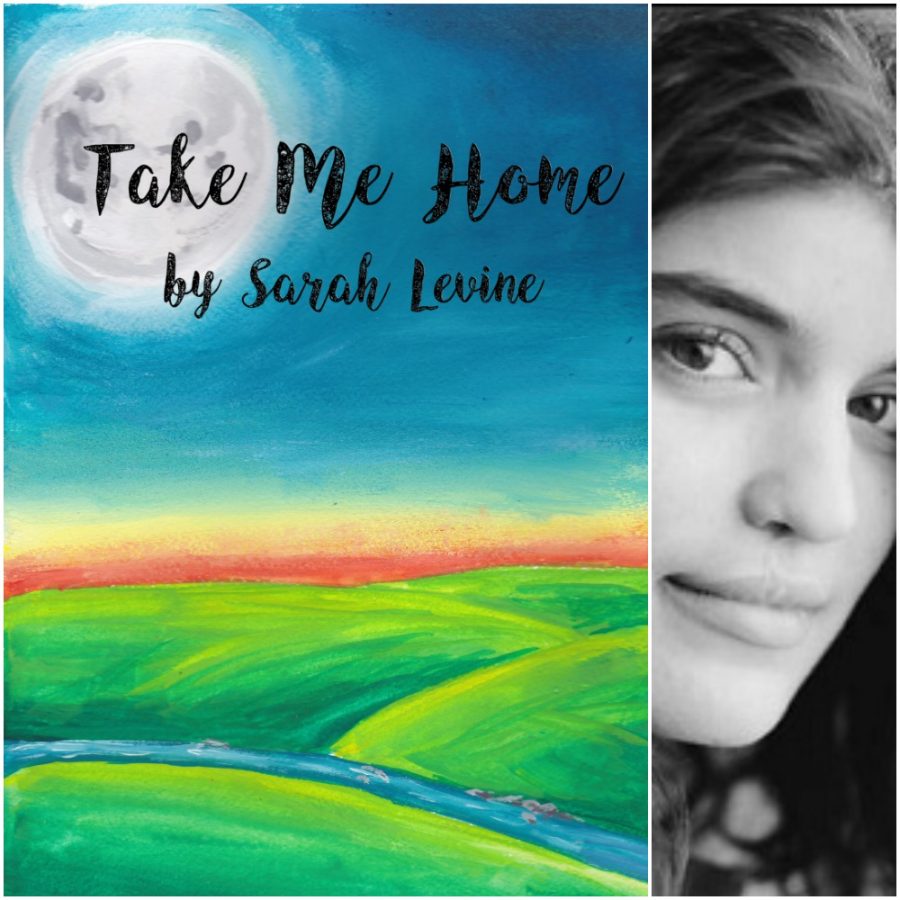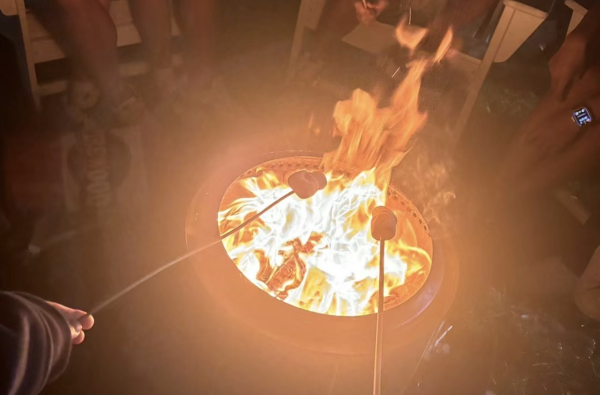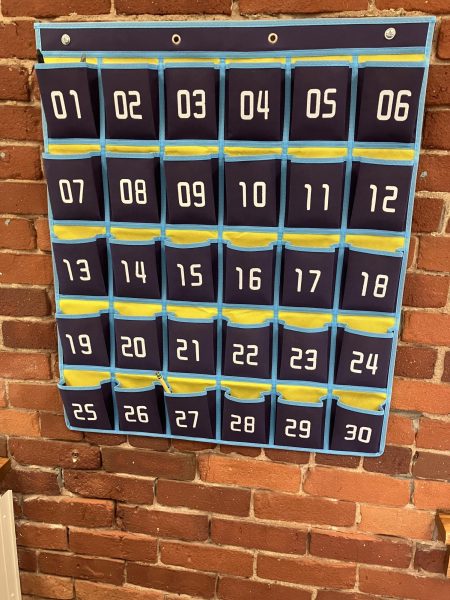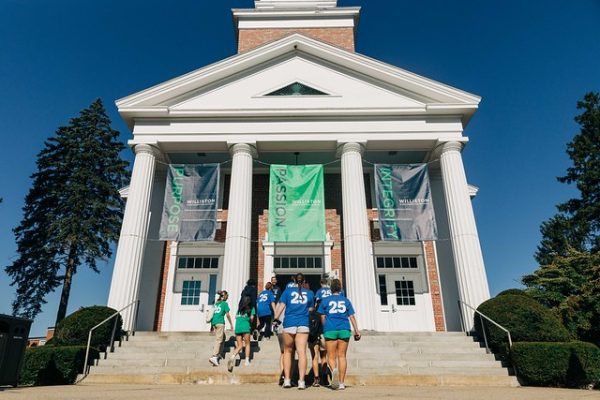English Teacher’s Poems “Swerve Toward Danger”
After an accident in the kitchen—you’re slicing a strawberry, you do it every morning, but the knife handle slips—there’s a tiny window after the skin is pierced but before the blood comes. That moment, a few seconds at the most, is where the beauty and power and fear of Sarah Levine’s poems live.
Consider this, from a 2016 poem called “I Hear a Goose in the Sky Say Again,” published in the Green Briar Review: “We started in a bedroom / tossing watermelon out a window, / watching chickens pick for seeds. / Your hand on the back of my neck / and if I told the entire story / I would never get it back.”
Or this, from “Forgotten Things” published in The Paris-American: “How absurd / to be given a mouth that craves fruit bruised into sugar. / The forgotten sun gored pulp, originally gnawed by rain and the inch worm’s / grotesque bite.”
Images like these fill the work in Levine’s new chapbook, Take Me Home, out October 16 on Finishing Line Press.
A Williston Middle and Upper School English teacher since 2019, Levine’s work has appeared in Best New Poets, PANK, Fourteen Hills, Green Mountains Review, and other journals; she won Westchester Review’s Writers Under 30 prize and has been nominated for a Pushcart Prize. She wields the language in her work with an ear for what she calls “vivid, violent” and visceral imagery.
“I like surprising the reader,” Levine, 31, said. “I never want the reader to feel complacent or safe. Basically, I write the opposite of who I am as a person and teacher.”
In the classroom, Levine’s even demeanor and disciplined, intentional, organized, and passionate approach to teaching has won her fans in both her seventh grade and senior AP Literature classes. On paper, however, another side of her gets the chance to speak.
In writing poetry that “always swerves towards danger,” Levine said, “I give myself permission to feel ugly things.”
“Hopefully I’m not so intense in the classroom,” she joked.
Cutting and brutal, tender and intimate, the knife-sharp language in Take Me Home is informed by the multitude of lives Levine’s lived while pursuing her passion.
Since graduating from Wellesley High School, Levine has racked up considerable academic and professional accolades. She attended the New England Young Writers’ Conference at Middlebury College’s Bread Loaf campus, and the Young Writers Workshop at Kenyon College. Along with a 2010 BA in English from UMass Amherst, Levine earned her first post-graduate degree, an MFA, from Sarah Lawrence College, in 2012.
While attending the graduate program in Bronxville, New York (before earning another post-graduate degree, a master’s in teaching from Smith College), Levine taught creative writing at the Baccalaureate School for Global Education, a public school in Queens. But it was her experience teaching the “Right to Write” course at the Westchester Department of Correction, an all-women’s facility in Valhalla, New York, that illuminated the transformational power and beauty of creativity.
“It was amazing,” Levine said of the program. “It taught me about systemic racism, about how much I don’t know about anything. That’s important, not to make assumptions.”
“Right to Write” gave Levine a platform to teach different styles of fiction and poetry to the students, all of whom were mothers or grandmothers. The women then wrote original stories to their children, which they recorded; the tapes and the stories were mailed home so their children could listen to their incarcerated family member read to them at night.
“The women were so brilliant and funny and passionate, and really gifted writers,” said Levine. “They were willing to be vulnerable and open up, and they were so welcoming.”
Writing, Levine said, gave the women both a community inside as well as a connection to family. Put to tape, the “heart wrenching, beautiful” work became, as she put it, “immortal.”
The importance of connecting writer and reader and giving a voice to those who may otherwise not be heard informs the poems in Take Me Home. The chapbook is a series of persona poems chronicling the misadventures, both real and psychological, of the inward protagonist, Herman, following his mother’s sudden death. The book, set in an imaginary southern gothic location, started as a graduate school project; she’s been “tinkering, adding, and evolving” the poems since 2012.
Levine cites the influence of John Berryman, whose “Henry poems,” (collected in The Dream Songs) are “so weird, in the best possible way: vivid melancholy, vibrant.” She’s also quick to praise those at the forefront of the craft who’ve opened the world of poetry and fiction to her, including Terrance Hayes, Keith S. Wilson, Lauren Berry, Carl Phillips, Franny Choi, Richard Siken, and Donna Tartt; these esteemed authors have given Levine a community, a voice, the freedom to explore and express.
About Crush, a 2005 Richard Siken collection, Levine said the work is “intense, not something you read to your grandma.” The poems, she said, “want to throw themselves on the train track, in the best possible way.”
“I love poems like that,” she added. “Mine try, sometimes.”
In the spirit of community, of poetry as a uniting thread, Levine is also doing her part to tie her creative pursuits into the larger fabric of the community. The cover art of Take Me Home is drawn by Williston incoming eighth grader Elise Ollman-Kahle, and all the proceeds she makes from the collection will be donated to the Equal Justice Initiative.











